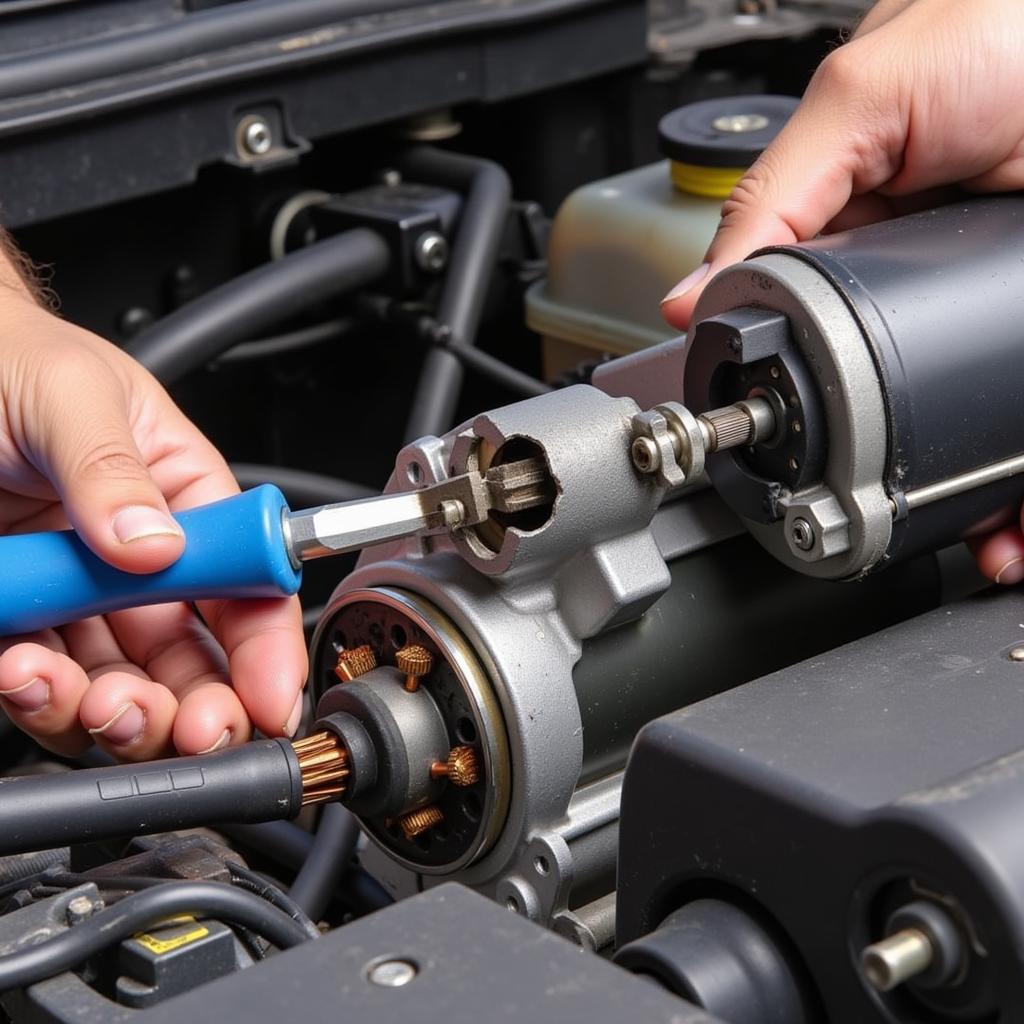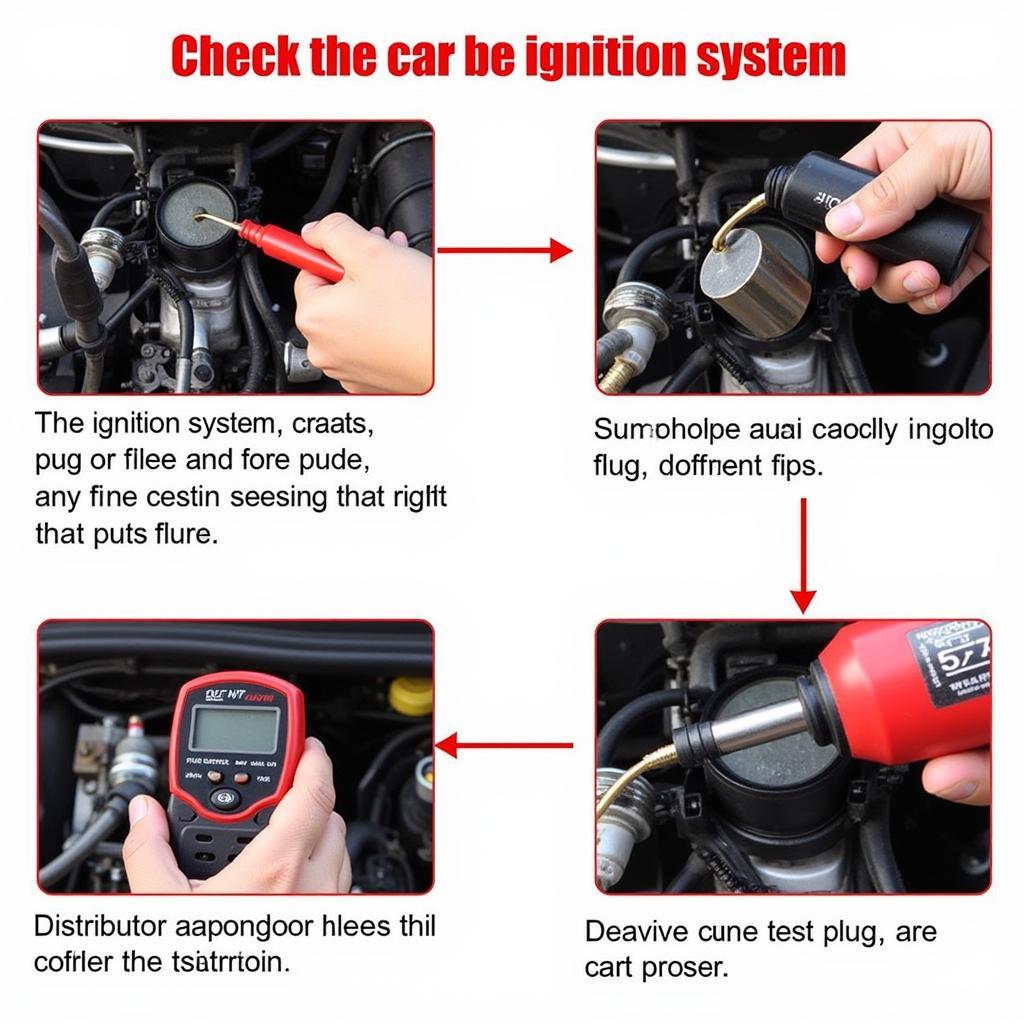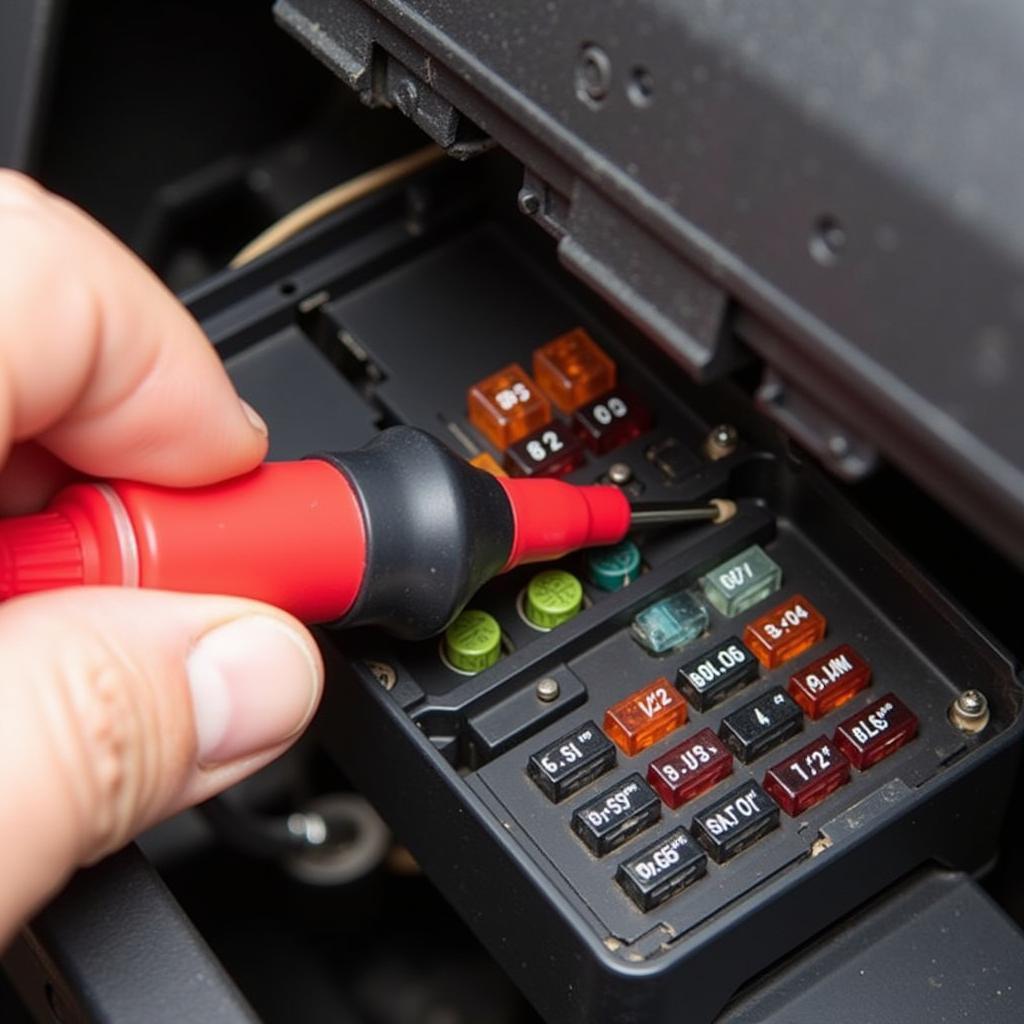A car that won’t start, even with a good battery and alternator, can be incredibly frustrating. This guide dives into the common culprits behind this issue and provides practical solutions to get you back on the road.
Like a car wont start after new battery, the problem might not be as obvious as it seems. Many drivers automatically assume the battery or alternator is faulty, but the reality is often more complex. This guide explores the electrical and mechanical systems that can prevent your car from starting, even when these primary components are functioning correctly.
Why Won’t My Car Start With a Good Battery and Alternator?
Several components beyond the battery and alternator can cause starting problems. These include the starter motor, ignition system, fuel system, and even security systems. Pinpointing the exact cause requires a systematic approach to troubleshooting.
The Starter Motor: The Heart of the Starting System
The starter motor cranks the engine, allowing it to start. If your starter is faulty, the engine won’t turn over even with a fully charged battery and a working alternator. Symptoms of a bad starter include a clicking sound when you turn the key, a grinding noise, or complete silence.
 Inspecting a car starter motor for damage
Inspecting a car starter motor for damage
The Ignition System: The Spark of Life
The ignition system provides the spark that ignites the fuel-air mixture in the engine cylinders. Problems with the ignition switch, ignition coil, distributor, or spark plugs can prevent your car from starting. Symptoms include a lack of spark, engine misfires, or a rough idle.
The Fuel System: Feeding the Engine
A car needs fuel to run, and a faulty fuel pump, clogged fuel filter, or malfunctioning fuel injectors can prevent the engine from starting. Symptoms may include a sputtering engine, difficulty accelerating, or a strong smell of gasoline.
Security System Issues: An Unexpected Culprit
Modern cars often have sophisticated security systems that can prevent the engine from starting if they detect a problem. A malfunctioning immobilizer system, for example, can disable the starter or fuel system.
 Checking the car's ignition system components
Checking the car's ignition system components
Diagnosing the Problem: A Step-by-Step Guide
- Check all connections: Ensure the battery terminals are clean and tight. Loose or corroded connections can prevent power from reaching the starter.
- Test the starter: Use a multimeter or a test light to check if the starter is receiving power. If it’s not, the problem may lie in the wiring or the ignition switch.
- Inspect the ignition system: Check the ignition coil, distributor, and spark plugs for damage or wear. If you suspect a problem, replace the faulty component.
- Examine the fuel system: Check the fuel pump, fuel filter, and fuel injectors. A fuel pressure gauge can help determine if the fuel pump is delivering sufficient pressure.
- Consider the security system: If you suspect a security system issue, try using a different key or resetting the system. If the problem persists, consult a qualified technician.
Similar to a car keep dying, persistent starting problems require professional diagnosis. Don’t hesitate to seek expert help if your troubleshooting efforts are unsuccessful.
Preventing Future Starting Problems
Regular maintenance can prevent many starting problems. Ensure your battery is in good condition, the alternator is charging correctly, and all connections are clean and tight. Regularly replacing the fuel filter and spark plugs can also prevent issues down the road.
What if I hear a clicking sound?
A clicking sound often indicates a weak battery or a faulty starter. Try jump-starting the car. If it starts, the battery may be the culprit. If not, the starter may be faulty.
Could it be a blown fuse?
A blown fuse can prevent power from reaching essential components, causing starting problems. Check the fuse box and replace any blown fuses.
 Checking car fuses related to starting issues
Checking car fuses related to starting issues
Just like 2016 dodge dart battery issues, specific car models can have unique starting problems. Consult your car’s owner’s manual or a qualified mechanic for model-specific troubleshooting advice.
Conclusion
A car not starting, even with a good battery and alternator, can be traced back to various culprits, from the starter motor and ignition system to the fuel system and security features. By following the troubleshooting steps outlined in this guide, you can identify the root cause and get your car running smoothly again. Remember, if you’re unsure about any step, it’s always best to consult with a qualified automotive technician. Don’t let starting problems keep you stranded—take control and get back on the road. For more insights, explore related articles like battery dies overnight no parasitic draw and car wont start not battery.
FAQ
- Can a bad ignition switch prevent a car from starting? Yes, a faulty ignition switch can prevent power from reaching the starter and other essential components.
- How often should I replace my car battery? Most car batteries last between 3 and 5 years.
- What are the signs of a failing alternator? Dim headlights, flickering interior lights, and a whining noise from the engine compartment are common signs of a failing alternator.
- Can extreme temperatures affect car starting? Yes, both extreme heat and extreme cold can affect battery performance and make it harder to start a car.
- How can I test my fuel pump? You can test your fuel pump using a fuel pressure gauge to measure the fuel pressure.
- What should I do if my car’s security system is preventing it from starting? Try using a different key or resetting the security system. If the problem persists, consult a qualified technician.
- Can a bad ground connection prevent a car from starting? Yes, a bad ground connection can disrupt the flow of electricity and prevent the starter from engaging.
